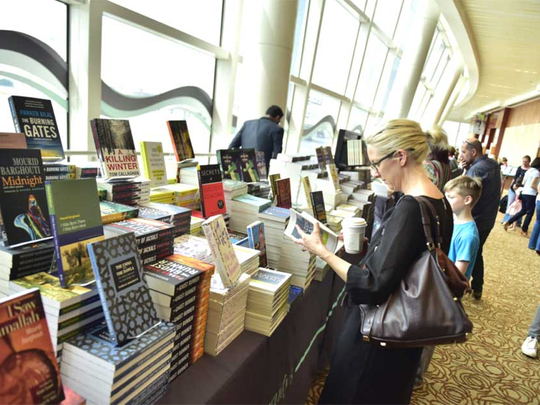
Conversation is more than just the exchange of words and information. It’s a connection between people, a sharing of ideas, emotions and especially stories. Every culture has a keenly developed style of conversation, from greetings to farewells, that is the result of thousands of years of both language and traditions intertwined, and the Emirates is no different.
When I arrived in Dubai, a long time ago, I soon became aware of the differences between the conversational openers here, and those I had been familiar with growing up in Cambridge, UK. Following Salaam Aleikum, it was essential, when greeting a friend or a colleague, to inquire after the health of all close family members, in descending order. This was in contrast to the Standard English short greeting of ‘Good morning’ (or afternoon or evening).Understanding and adopting this recognised and well-mannered way of starting a conversation was a steep learning curve for me, and it wasn’t limited to face-to-face meetings. Telephones were few and far between in the late sixties, and so the introductory phrases and enquiries about family still had to be tackled before it was considered polite to broach the real reason for the phone call. Another pitfall that I fell headlong into, in my early days living in this wonderful place, was using the classic English conversational gambit of admiring something that caught my eye: an ornament, a piece of jewellery, an item of clothing, anything in fact. In England this would often be met with disguised pleasure and a reply along the lines of ‘Oh, that old thing!’ In Dubai, however, the item in question would promptly be gifted to me and, despite my earnest protestations, I would leave laden and embarrassed by my faux pas, and struck by the enormous generosity embedded in Arab culture.
Luckily, I was young and a quick learner. I was fascinated by how different a conversation could be, dependent on cultural norms. As my Arabic improved, the art of conversation in the Emirates became second nature. I discovered the use of language, in many instances, to be much subtler than in English. Nuances, pauses, even praise, could be used in a variety of creative ways, and body language was also important in imparting meaning to the words used. I also found that humour in Arabic did not lend itself well to translation. When everyone around me was in fits of laughter, hearing the English version of the joke meant I never understood what was so funny. I had to wait until I no longer needed a translation to join in the hilarity. Nowadays, most of us spend a considerable amount of time on our electronic devices, possibly emailing a colleague in the same office, or even sending a text to someone sitting at the same table! It makes me wonder how this is impacting on our ability to converse with our fellow human beings, and how to ensure we stay properly in touch. Making time to have family meals together, with all mobile devices kept aside, can most definitely assist in everyone present talking and honing their conversational skills — and rediscovering how much fun it is to be human again! And whilst reading can be a solitary activity, if you have children then reading aloud a shared book is a really enjoyable way to connect with them. In addition, it widens their vocabulary, helps with language usage and gives you great topics for discussion together.
Salon culture
I recently attended a literary salon in Dubai and the invited author was interviewed about his award-winning book. That was interesting, but what was startling and gripping was when he read us selected passages. The choice of words and their order was entirely his creation, his intonation, and pauses bought each part he shared with us to life in an entirely different way, as if I had been reading it to myself. This experience was a single example of what it is like to attend a live unscripted event. These kind of salons were much more common in the past. In the Arab world they would be held at the author’s home or in his or her favourite coffee shop. In 17th century Europe, literary salons flourished and would include not just famous writers such as Goethe, but eminent scientists, economists, musicians and artists. The gatherings were, by their nature, elitist, but the salon culture became the incubator of ideas that heralded the age of enlightenment, and a flourishing cultural scene. If you feel your conversational style is lacking its former sparkle, or you are missing out on live discussions, heated debates, reminiscing about the past, or contemplating the future — or talking about happiness, healthy eating, and folktales of old — then help is at hand! The tenth Emirates Airline Festival of Literature, to be held from March 1-10 at the Intercontinental, Festival City Dubai, features 180 renowned authors from around the world. You are guaranteed real, live, inclusive conversation on every conceivable subject, with simultaneous translation between Arabic and English, so language is never a barrier.
So join in and be part of the conversation at the Arab world’s largest celebration of the written and spoken word!
Isobel Abulhoul is OBE, CEO and trustee of the Emirates Literature Foundation and director of the Emirates Airline Festival of Literature.








